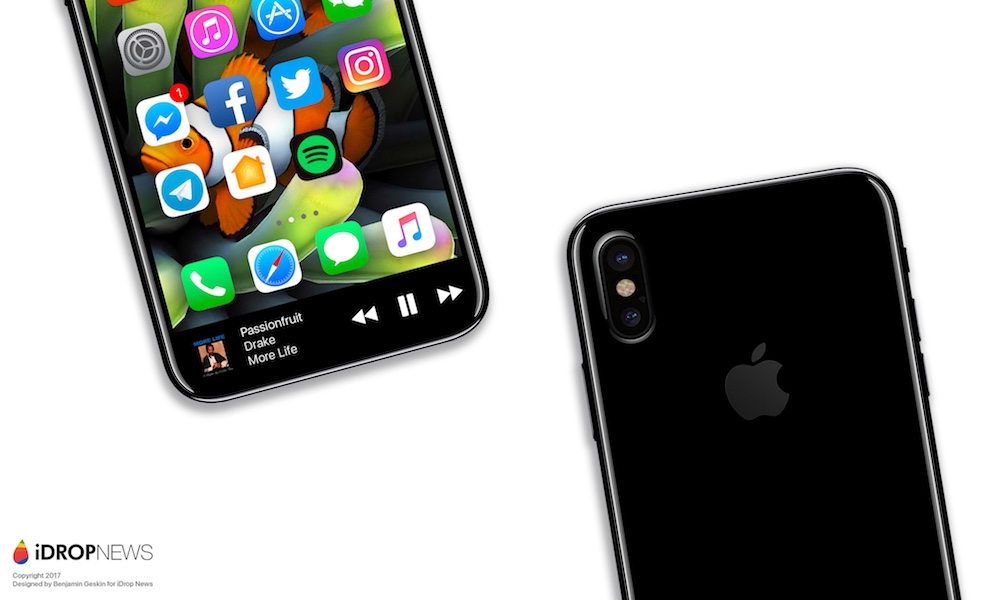iPhone 8 to Feature Ultra-Fast Charging via USB-C to Lightning

Image Copyright 2017 iPhone 8 Concept, iDrop News. Attribution required.
Toggle Dark Mode
More evidence is mounting that, in addition to wireless charging capabilities, the upcoming iPhone 8 will also feature wired fast-charging by way of a 10W USB-C power adapter and corresponding power chip, according to several prominent Apple analysts.
More specifically, the upcoming Apple flagship is believed to be the first to come with a 10W power adapter with a USB-C — rather than USB-A — port, according to a research note penned by Barclays analyst Blayne Curtis, which was distributed to clients and obtained by MacRumors on Wednesday. In addition to the new port standard, Curtis believes that the iPhone 8 will include a USB-C Power Delivery chip, likely the same CYPD2104 chip installed in the recently released 10.5-inch iPad Pro. All of which will result in much faster wired charging capabilities for the iPhone 8.
To be clear, it’s highly unlikely that Apple will do away with the Lightning port — it’s the other end of the cable that analysts are probably talking about here. Previously, a February Wall Street Journal report claimed that Apple would nix its Lightning standard in favor of USB-C, citing “insider sources.” Renowned KGI Securities analyst Ming-Chi Kuo later released a research note refuting that suggestion for several reasons. Additionally, the wording in the WSJ’s report was rather vague, which could have been a cause for confusion.
Rather than axing the Lightning port in favor of USB-C, there’s a higher probability that Apple will bundle a Lightning-to-USB-C cable with its upcoming flagship. To back this possibility up, just take a look at Apple’s 2016 and 2017 MacBook Pro lineup — both of which are outfitted with Thunderbolt 3 ports, a standard that shares the same cable and connector design as USB-C. This, of course, would allow more seamless connectivity between the company’s upcoming flagship and latest MacBook Pros. Currently, connecting an iPhone to the new MacBook Pro models requires an adapter.
While USB-A ports are still fairly ubiquitous in the tech industry, it makes more sense for Apple to bring its Lightning cables up-to-speed with the latest standard on its notebooks rather than getting rid of Lightning. On the flip side, that also means that Apple users might have to carrying an extra Lightning to USB-A cable or a USB-C to USB-A dongle to charge in certain instances.
[The information provided in this article has NOT been confirmed by Apple and may be speculation. Provided details may not be factual. Take all rumors, tech or otherwise, with a grain of salt.]






